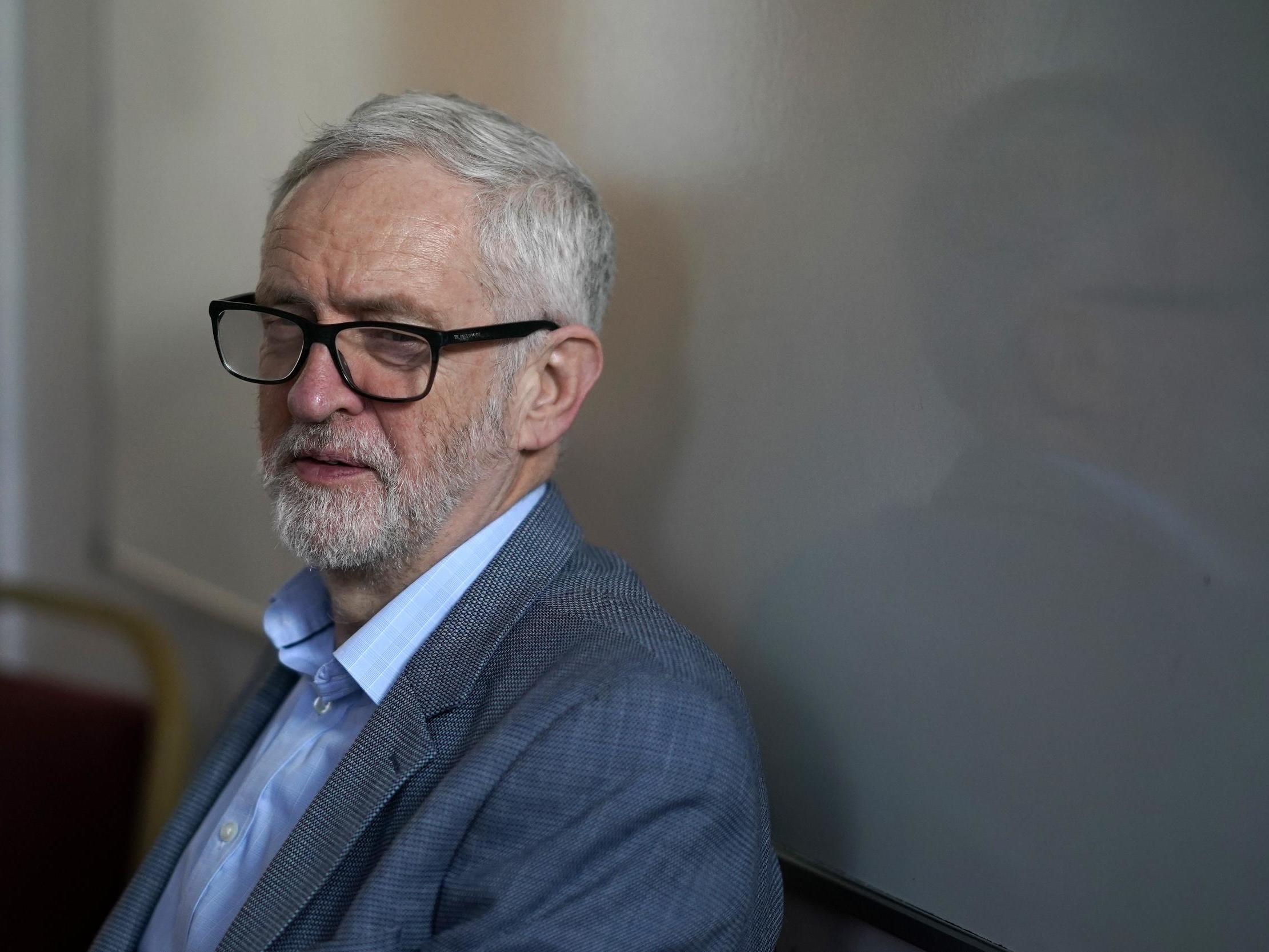Jeremy Corbyn accuses hostile party officials of sabotaging Labour’s election campaign
Submission to party internal inquiry says there was ‘clear evidence of factional activity’ against the leadership

Your support helps us to tell the story
From reproductive rights to climate change to Big Tech, The Independent is on the ground when the story is developing. Whether it's investigating the financials of Elon Musk's pro-Trump PAC or producing our latest documentary, 'The A Word', which shines a light on the American women fighting for reproductive rights, we know how important it is to parse out the facts from the messaging.
At such a critical moment in US history, we need reporters on the ground. Your donation allows us to keep sending journalists to speak to both sides of the story.
The Independent is trusted by Americans across the entire political spectrum. And unlike many other quality news outlets, we choose not to lock Americans out of our reporting and analysis with paywalls. We believe quality journalism should be available to everyone, paid for by those who can afford it.
Your support makes all the difference.Jeremy Corbyn has accused Labour officials of trying to sabotage the party’s 2017 general election campaign out of factional hostility to his leadership.
A submission from Mr Corbyn and his top allies prepared for a Labour internal inquiry says “there is clear evidence of factional activity by senior paid employees of the party against the elected leadership of the time” as well as “apparent sabotage” during the election period.
The intervention is likely to inflame Labour’s fractious internal tensions and present a new challenge for Keir Starmer, who was elected on a pledge to unite the party after a tumultuous period.
The 13-page contribution, seen by The Independent, says: “Given that Labour was less than 2,500 votes in key seats away from forming a government, having won 40 per cent of the popular vote, it’s not impossible that Jeremy Corbyn might now be in his third year as a Labour prime minister were it not for the unauthorised, unilateral action taken by a handful of senior party officials in 2017.”
The claims relate to the contents of a leaked dossier drawn up by allies of Mr Corbyn in the last days of his leadership, that included an explosive cache of previously private messages between senior party staffers aligned with the party’s centrist wing.
The messages detail at length senior staffers disappointed when Labour did better than expected in the election or polls, with some saying explicitly that they had been working against a good result for the party. While none of those named in the report have disputed the veracity of the messages, some have said that claims made in the report are false.
The leaked internal communications also show officials warning to keep certain activities, including the direction of some campaigning resources, secret from the leadership and its allies or any other officials they deemed to be too left wing.
“Many of us experienced the daily hostility and obstruction towards Jeremy, his office and members of the shadow cabinet and the frequent leaking and hostile briefing to the media,” the statement says, adding that “some of us will provide examples of these in our individual submissions”.
In 2016 hostile MPs tried to replace Mr Corbyn as party leader in a so-called “coup”, but he was re-elected with a bigger majority in a second leadership contest.
Keir Starmer commissioned lawyer Martin Forde QC to lead an inquiry into the leaked document after it came to light, to look into its contents and how it was leaked. Other than factional hostility, the dossier claimed a “toxic” culture had developed at the party’s head office that included racist, sexist and violent language. It also claimed that factional hostility made it harder to deal with antisemitism in the party.
Names endorsing the statement to the Forde inquiry including Mr Corbyn, his former shadow chancellor John McDonnell, and senior aides Andrew Fisher, Karie Murphy, and Seumas Milne – some of whom have not always seen eye to eye on the direction of Mr Corbyn’s leadership.
A separate submission, reported by The Guardian, from the officials accused of sabotage, alleges that the leaked report misused their private messages to make them seem racist and sexist. They are expected to take the Labour Party to court over alleged data protection breaches and libel.
One of the former staff members involved described the suggestion by Mr Corbyn's team as a "ridiculous conspiracy theory" and an attempt to create a "stab in the back myth" adding: “The leaked report contains no evidence that party staff did not try and do the best they could to win the 2017 election. Not one piece of actual evidence."
However, one election night chat log included in the leaked report showed that 45 minutes after the exit poll revealed that Labour had overturned the Conservative majority, one senior official said the result was the “opposite to what I had been working towards for the last couple of years”.
Last month Labour agreed to pay “substantial damages” to seven former party workers who appeared on a Panorama programme about antisemitism in the party. The party said a previous statement about staffers had “contained defamatory and false allegations”.
Labour won 40 per cent of the vote in 2017, unexpectedly costing Theresa May her majority in parliament and increasing the party’s vote share from 30 per cent in 2015.
In 2019, riven by splits over a possible second referendum and allegations of antisemitism, the party fell to 32 per cent and lost swathes of seats, particularly in the Midlands and north of England. The 2019 result was the worst in terms of MPs elected since 1935, though Labour’s second highest vote share since 2005.
Join our commenting forum
Join thought-provoking conversations, follow other Independent readers and see their replies
Comments